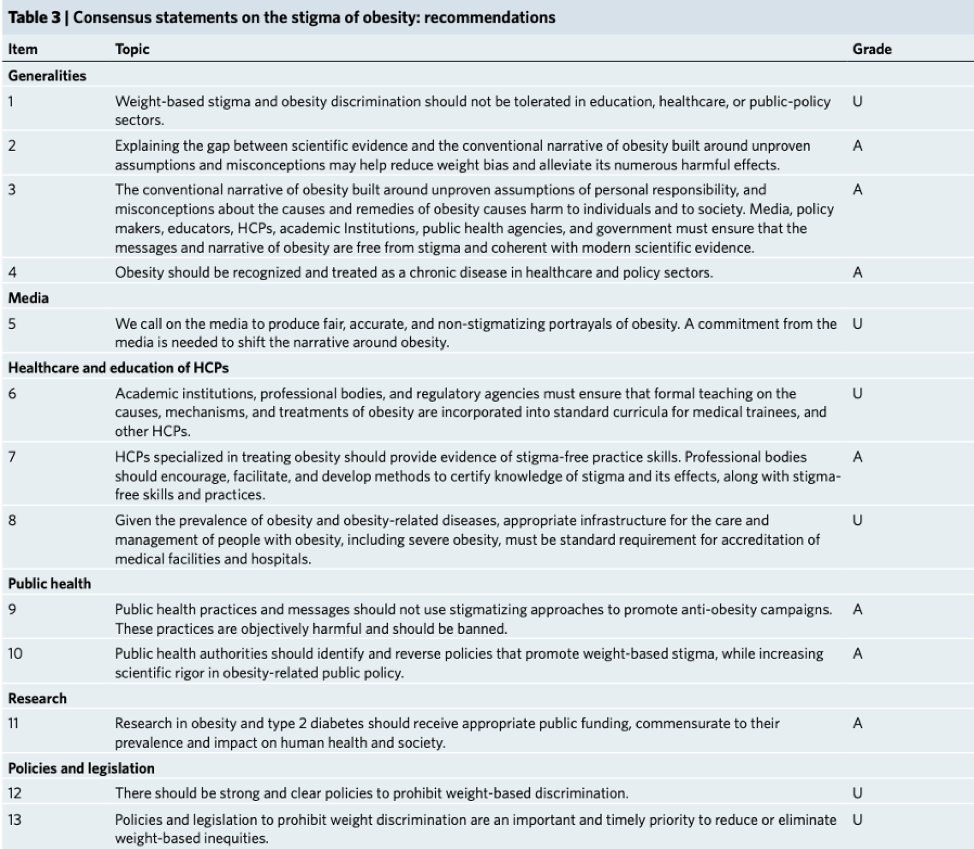Experts Unite to End Obesity Stigma: Statement Released on World Obesity Day
By Divya Gopisetty
 Divya Gopisetty and Martin Kurian
Divya Gopisetty and Martin Kurian
Experts wrote a joint consensus statement on what is needed to combat obesity stigma. The statement dives into common myths about obesity and offers recommendations for policy, healthcare, media, and research
For World Obesity Day, 36 experts representing nine countries published a consensus statement on ending the stigma of obesity. With the statement, they aimed to create “one voice” to help fight the widespread weight stigma in the public, media, and healthcare.
Experts used over 100 scientific and medical articles to discuss the science and medicine of obesity. They want to shift the narrative of blame against people affected with overweight and obesity. The statement dives into a few of the common public misconceptions in the obesity narrative.
Here are five misconceptions that the experts highlighted:
-
Body weight = calories in – calories out
This equation means that body weight is the result of the amount you eat (calories in) minus the amount you exercise (calories out). However, bodyweight depends on much more than eating and exercise. This view of body weight does not take into account the powerful body systems that maintain body weight within a relatively small, narrow range. For example, one other factor that affects the equation is the metabolic rate (the amount of energy your body uses at rest), which varies from person to person.
-
Obesity is primarily caused by voluntary overeating and a sedentary (inactive) lifestyle.
There are actually many factors that contribute to obesity and weight gain, including genetics, sleep deprivation, and stress. Evidence also suggests that overeating and a lack of physical activity might be symptoms of obesity rather than root causes.
-
Obesity is a lifestyle choice.
Available data show that people with obesity recognize it as a serious health problem, not as a conscious choice.
-
Obesity is a condition, not a disease.
Medical and biological evidence show that the criteria used to classify a disease are clearly fulfilled in many individuals with obesity. These criteria include specific signs or symptoms, reduced quality of life, increased risk of further illness, complications, and changes from normal body functions.
-
Obesity is usually reversible by voluntarily eating less and exercising more
This is not supported by evidence. Body weight is not just regulated by voluntary food intake and physical exercise.
What did experts recommend?
The consensus group created a robust list of recommendations across media, healthcare, public health, research, and policy to help reduce the impact of weight stigma. See below for the comprehensive list:

As we described in our weight stigma article, obesity does not happen because an individual is unaware of how to manage his or her weight. It is a result of the complex – and often harmful – systems in which we live. As obesity rates continue to climb internationally, it is important to effectively and compassionately care for people with this disease. We hope that a reduction in stigma will help increase access and coverage for obesity treatments and promote prevention efforts that target the true, systemic causes of obesity.
Photo credit: © Obesity Action Coalition







